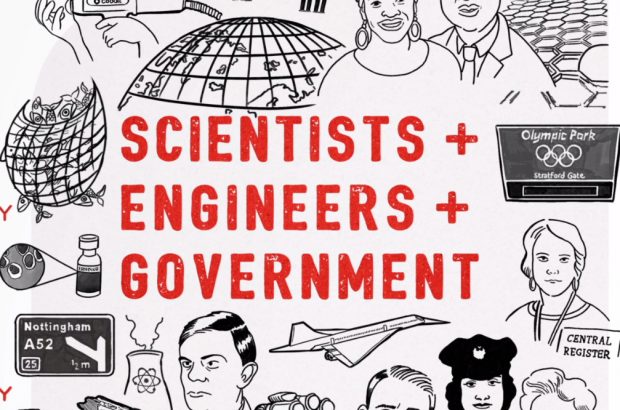Sir Mark Walport reflects upon the positive progress being made on the GSE Strategy, and he unveils a new video animation for the profession, which seeks to answer the question: what’s in it for me?
It has been a pleasure to lead the profession; we have made rapid progress over the past 12 months. Last week, I chaired what will be my final GSE Profession Board before moving to UK Research and Innovation (UKRI) later this year. I wanted to update you on the progress we are making on the strategy, and highlight some of the challenges that the profession is still facing.
What’s in it for me?
One question that continues to be raised by departments at the board is: Why sign up to GSE? In my view, the answer is pretty straightforward. You should sign up if you are interested in your professional development, satisfying career paths, and want recognition for your hard work. If you want to shape the profession; making sure it meets your current and future needs, again, I would encourage you to sign up. Read more here.
If you remain unconvinced about becoming a member, my team has produced a short video animation which builds on the success of the GSE Story; “We are GSE”. It illustrates how the work of scientists and engineers in government succeeds in achieving global impact. I encourage you to view the video and to share it with your colleagues and friends to improve the understanding of who we are and what we do.
Valuing science and engineering in government
At the regional workshops that we ran last summer, scientists and engineers told us that they felt their work was not valued. I am pleased to report that we have been working hard to negotiate a change in category for the “The Use of Evidence” award at this year’s Civil Service Awards. I’m delighted to announce that for the first time, the award will recognise the excellent work in science, engineering and technology. As Category Champion, I strongly encourage you to apply; it is a great chance for you to celebrate both individual and team success.
How do we make the strategy work for departments?
Each department is at a different stage of implementing the strategy and many are adapting it to suit their own purposes. For example, DEFRA, BEIS and DfT are using it to reach out to their agencies and arms-length bodies across the UK uniting their science and engineering communities. Health and Safety Executive (HSE) and Intellectual Property Office (IPO) are using it to motivate continuing professional development (CPD) and Public Health England (PHE) are employing it to support organisational change. This approach seems right to me, the strategy is after all a framework for action and was never intended to be followed verbatim. Ultimately, it has to inspire scientists and engineers in individual departments and meet their business needs.

Professionalising the profession
The board heard from the Infrastructure and Projects Authority (IPA) about their Project Delivery Capability Framework which maps specific roles in project delivery to a project delivery curriculum. We should be aspiring to take our own profession to the next level. Doing more to professionalise the profession, for example, developing our own professional skills framework and programme of L&D linked to the 9-box talent grid and the annual appraisal process. This will provide departments with assurance that their government scientists and engineers have the right skills and expertise to do their jobs effectively.
STEM outreach
Encouraging staff to engage in STEM outreach activities received resounding support and enthusiastic nods from around the table. A number of departments have well-established programmes in place, such as Defence Science & Technology Laboratory, National Physical Laboratory (NPL) and the Met Office. Many organisations run family days, attend Big Bang Fairs and organise events around National Science Week. We will need to coordinate these activities effectively and learn from each other’s experience, tying this work into our aspiration to be a more diverse and inclusive profession.
Over the next few months, my team will be setting up STEM Ambassador training events and thinking of new ideas to support the Year of the Engineer 2018. So, please watch this space.
Sign up to the GSE blog to stay up to date with the latest opportunities.







